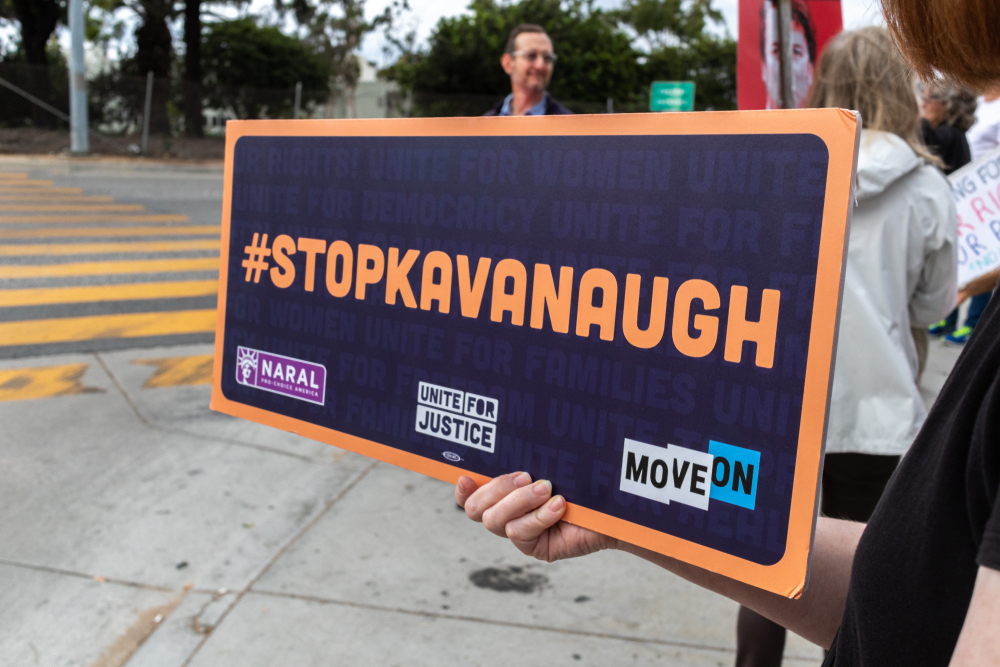It’s a familiar story: A candidate for president loses the popular vote, is still selected by the Electoral College, and nominates judges to federal courts who reverse groundbreaking civil-rights laws.
Trump and Kavanaugh aren’t the first.
It happened before, starting in 1876. By the end of 1877, Rutherford B. Hayes–appointed federal judges were presiding over the end of Reconstruction. Jim Crow segregation came back in full force, the Klan rose again with no legal challenge, and an era of lynching exploded across the South and beyond.
More than 140 years later, the potential confirmation of Brett Kavanaugh to the Supreme Court threatens a very similar reversal of so many victories: in the struggles for women’s rights, against racism, to limit the power of corporations, for protection of the environment, against torture and mass surveillance, for the rights of immigrants and refugees, and so much more.
The confirmation process has revealed to the whole country, indeed the whole world, the reality of sexual abuse and how it impacts—or fails to impact—access to the highest levels of US power. A wide range of movements are in the streets, in the Senate, and in federal buildings across the country saying no more to the pervasive legacy of attacks on women going unreported and their attackers remaining unaccountable.
…
